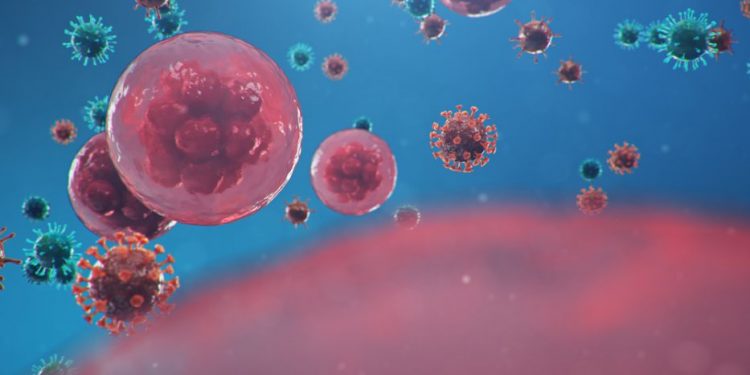Synovial sarcoma is a rare form of soft tissue cancer that affects the joints. It can cause pain and problems with movement of the joint. It can also spread (metastasize) to other parts of the body. Researchers aren’t sure what causes this type of cancer. They do know that it is linked to changes in the chromosomes. Chromosomes are the parts of your cells that contain your genes. These changes can happen when your cells divide. Sometimes the new cells can’t make enough of certain proteins, so they start to grow out of control.
Doctors don’t always find the tumor when it first appears. It might be found by accident when a patient is having an exam or treatment for another condition. The doctor might notice a lump or swelling in the area of the tumor. The doctor might also hear a cracking or popping sound when the joint moves. The doctor might do a test called a CT scan to see the size and location of the tumor. The doctor might also do a needle biopsy or surgery to remove a sample of the tumor and send it to a lab for testing. The lab will look at the cells to see if they are cancer. The doctor will use the results of the tests to create a treatment plan.
The type of treatment for synovial sarcoma depends on how much the tumor has grown and whether it has spread. The goals of treatment are to relieve symptoms and reduce the chance that the cancer will come back. The doctor might prescribe medicine, surgery, radiation therapy or a combination of these treatments.

Usually, the treatment plan for synovial sarcoma includes surgery to remove as much of the tumor as possible. This might include removing nearby tissue and bones. The surgery might be done before or after other treatments. Radiation therapy uses x-rays or other types of radiation to kill cancer cells and keep them from growing. The doctor might prescribe radiation therapy before or after surgery. The doctor might also prescribe chemotherapy to kill cancer cells that remain after surgery or radiation therapy. Chemotherapy uses strong medicines to kill cancer cells. They might be given before or after surgery, or they might be used to treat synovial sarcoma that has spread to other areas of the body.
Some people with synovial sarcoma may join a clinical trial to try new treatment options. These trials are research studies that test how well different treatments work for people with a disease. People who join a clinical trial might get the best chances for a cure.
People who have been treated for synovial sarcoma need regular follow-up care. This might include visits to the doctor, imaging tests and blood work. Doctors might also give patients other drugs to help prevent the cancer from coming back or spreading. It is important to talk with your doctor about the risks and benefits of these treatments.









